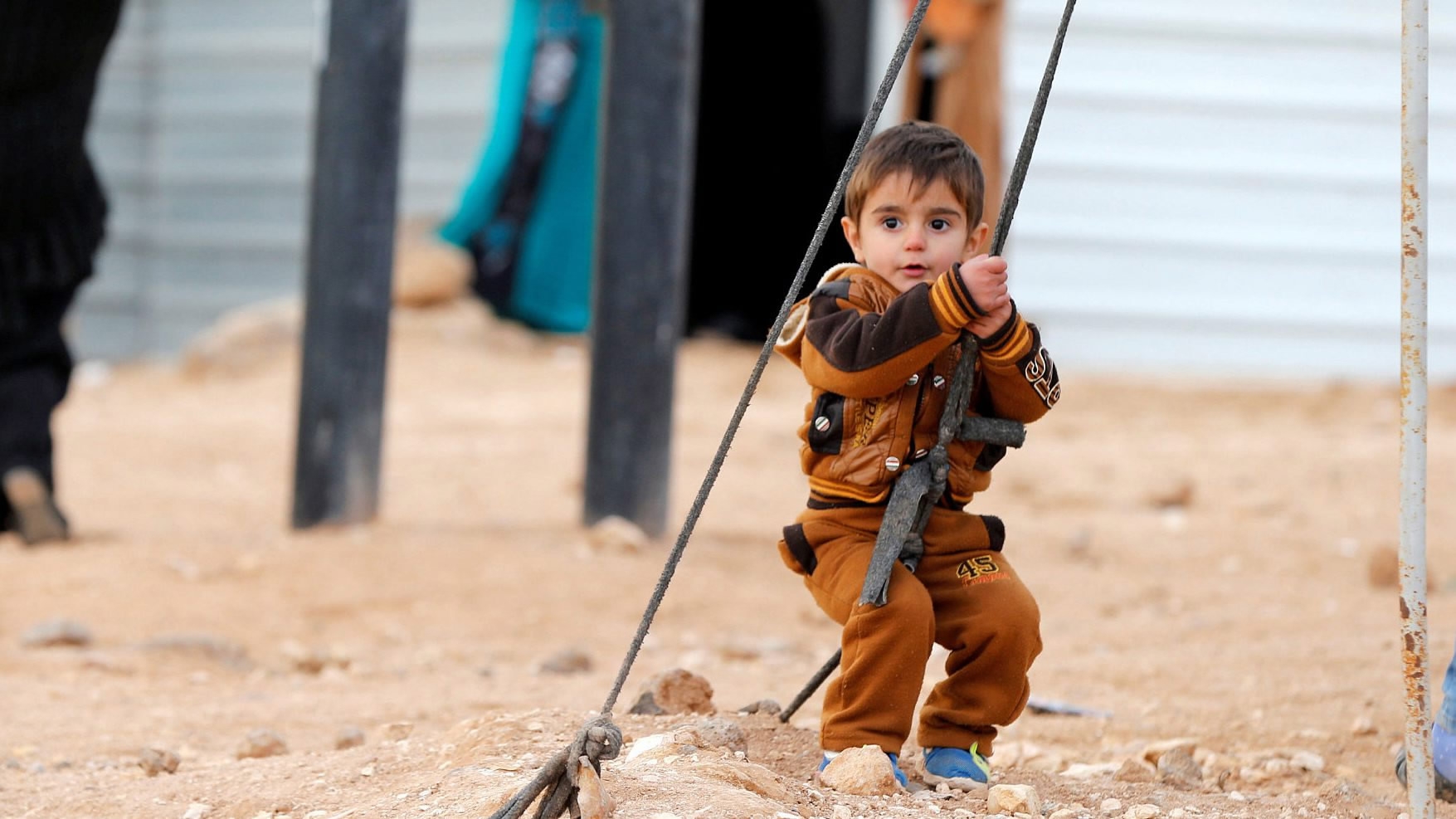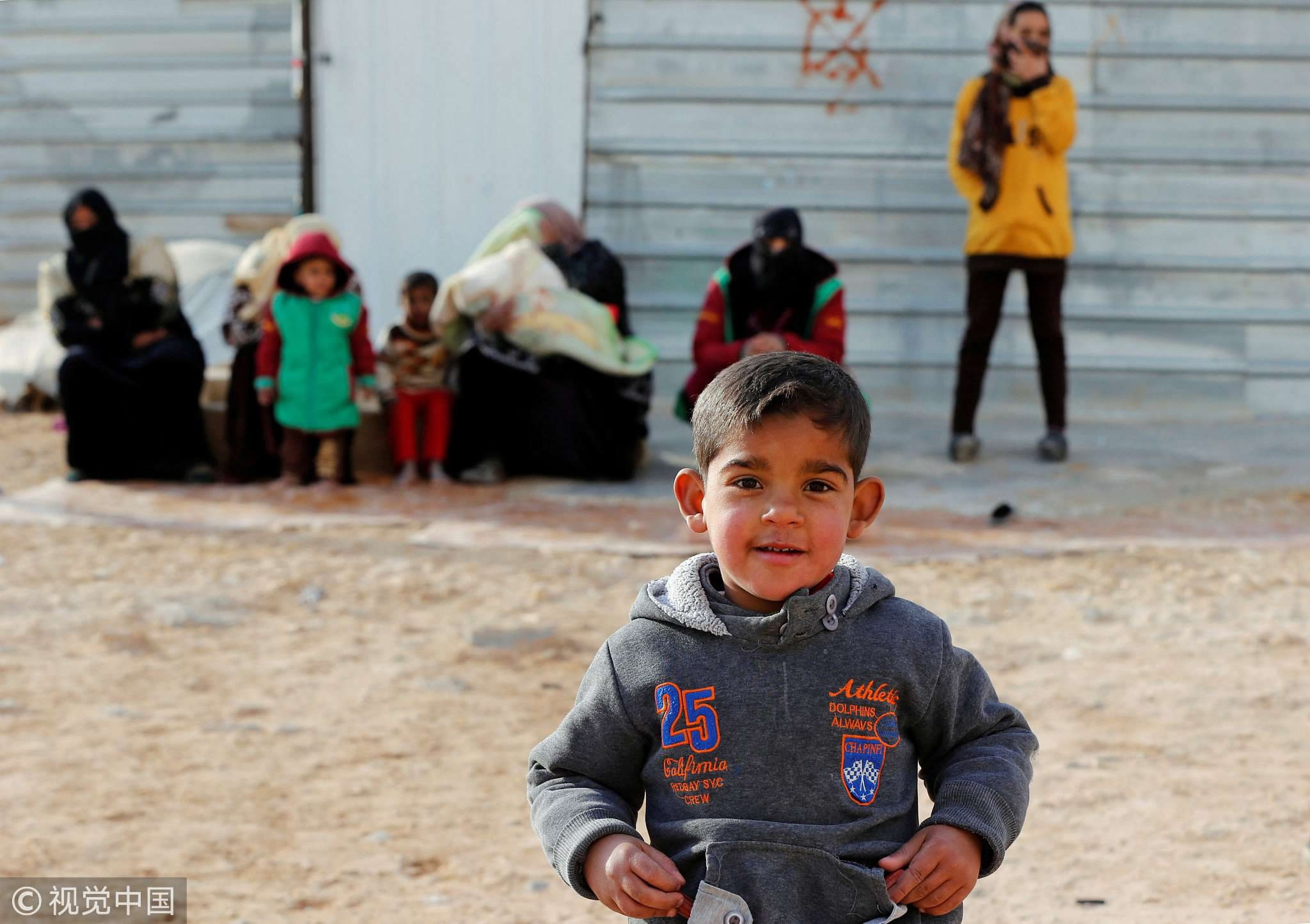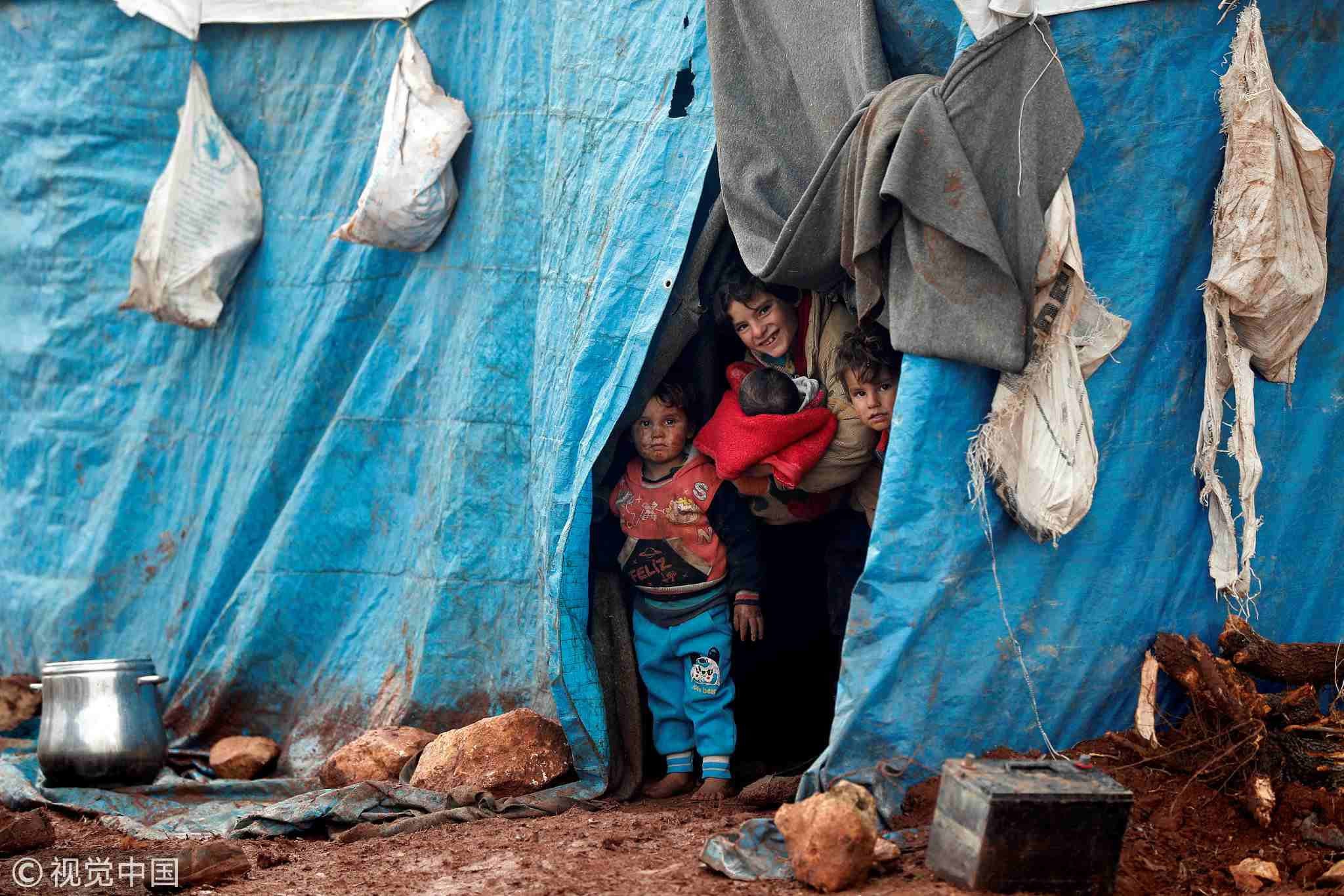
Culture
10:51, 31-Jan-2018
UNICEF issues $3.6 bln appeal for war-affected children
CGTN

Vulnerable children engulfed in conflicts and disasters "face an increasingly bleak future," unless urgent action is taken for them, the United Nations Children's Fund (UNICEF) said Tuesday, launching a 3.6 billion US dollars emergency appeal.
Humanitarian Action for Children 2018 is the name of the report launched by UNICEF in Geneva to back its appeal, as the agency highlighted how devastating the past year has been for children.
UNICEF's deputy executive director Omar Abdi, wrote: "In so many places, violent conflict is driving humanitarian need to critical levels. In 2017, conflicts that have endured for years continued to deepen in complexity and impact."

Syrian refugee child at the Al Zaatri refugee camp, in the Jordanian city of Mafraq /VCG Photo
Syrian refugee child at the Al Zaatri refugee camp, in the Jordanian city of Mafraq /VCG Photo
Director of Emergency Programs Manuel Fontaine said: "Children cannot wait for wars to be ended, with crises threatening the immediate survival and long-term future of children and young people on a catastrophic scale."
He said that today, one in every four children in the world is living in a country affected by conflict or disaster and that nearly 50 million children have been uprooted from their homes due to violence, poverty or natural disasters.
Democratic Republic of Congo, Iraq, Nigeria, South Sudan, Syria and Yemen are among countries where children live in years-long or cyclical violence, Fontaine pointed out.

Displaced Syrian children look out from their tents at Kelbit refugee camp. /VCG Photo
Displaced Syrian children look out from their tents at Kelbit refugee camp. /VCG Photo
He said that around 117 million people living through emergencies lack access to safe water and that in many countries affected by conflict, more children die from diseases caused by unclean water and poor sanitation than from direct violence.
UNICEF said that in the first 10 months of 2017, it provided almost 30 million people with access to safe water, 13.6 million children with vaccination against measles, 5.5 million children with some form of education.
It also provided 2.5 million children with treatment for severe acute malnutrition and 2.8 million children with psycho-social support.
Source(s): Xinhua News Agency

SITEMAP
Copyright © 2018 CGTN. Beijing ICP prepared NO.16065310-3
Copyright © 2018 CGTN. Beijing ICP prepared NO.16065310-3